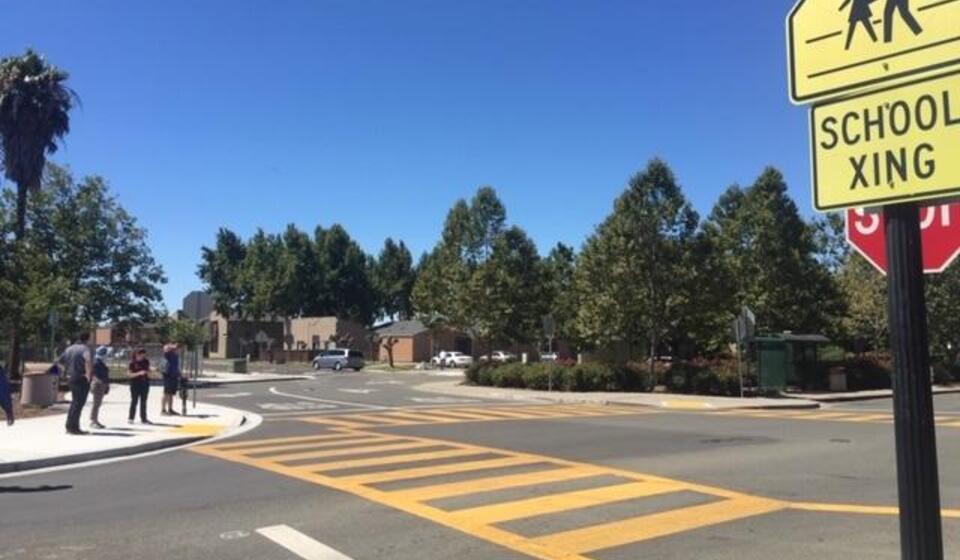Note: GJEL Accident Attorneys regularly sponsors coverage on Streetsblog San Francisco and Streetsblog California. Unless noted in the story, GJEL Accident Attorneys is not consulted for the content or editorial direction of the sponsored content.
The Safe Transportation Research and Education Center (SafeTREC) at UC Berkeley, working with California Walks, has opened up applications for the next round of its Community Pedestrian and Bicycle Safety Training.
These trainings are offered to communities throughout the state to help them better understand and respond to local safety needs and concerns. Program goals include strengthening collaboration between planners and community members and collectively developing "a community-driven safety action plan."
Since 2009 the Community Pedestrian and Bicycle Safety Training program has conducted 112 pedestrian and bicycle safety trainings throughout California.
Groups that participate include local residents, schools, city and county agencies, local officials, tribal governments, and safety advocates, and the trainings emphasize the importance of community-based expertise and strong collaboration between transportation professionals and communities. SafeTREC works with communities to customize the trainings for their needs.
The program is looking for seven communities to participate in the training this year, prioritizing areas that experience high road traffic injuries and where people are underserved by traditional transportation planning and resources. The selected communities will work with a team from SafeTREC and CalWalks to review local pedestrian and bicycle crash data, discuss safety strategies, complete a community walking and biking assessment, and identify safety goals and actions to take.
The program - which is free - was originally formulated as an in-person workshop, with trainers heading out to the streets with planners and community groups to assess conditions on the ground. Since the pandemic, however, it has pivoted to an online format, still customized for each community while allowing everyone to participate safely.
More about how the program was adapted can be learned from this presentation with UC Berkeley SafeTREC Senior Program & Policy Analyst Katherine Chen.
Information about how to apply can be found on the SafeTREC site, here.
Also available at that same link is information about continuing support for communities that have already completed the training and may need technical assistance to implement the recommendations they created.
This spring, SafeTREC will also be hosting a three-part peer exchange series for communities that have already completed a training and want to connect with other communities working on the same issues.
One more thing: SafeTREC is offering free Complete Streets Safety Assessments to California communities, including cities, counties, and school campuses with a population of over 2,500 people. These assessments can help local agencies identify and implement traffic safety solutions that lead to improved safety for all users of California’s roadways. The deadline to submit applications has been extended to February 15, 2022.






